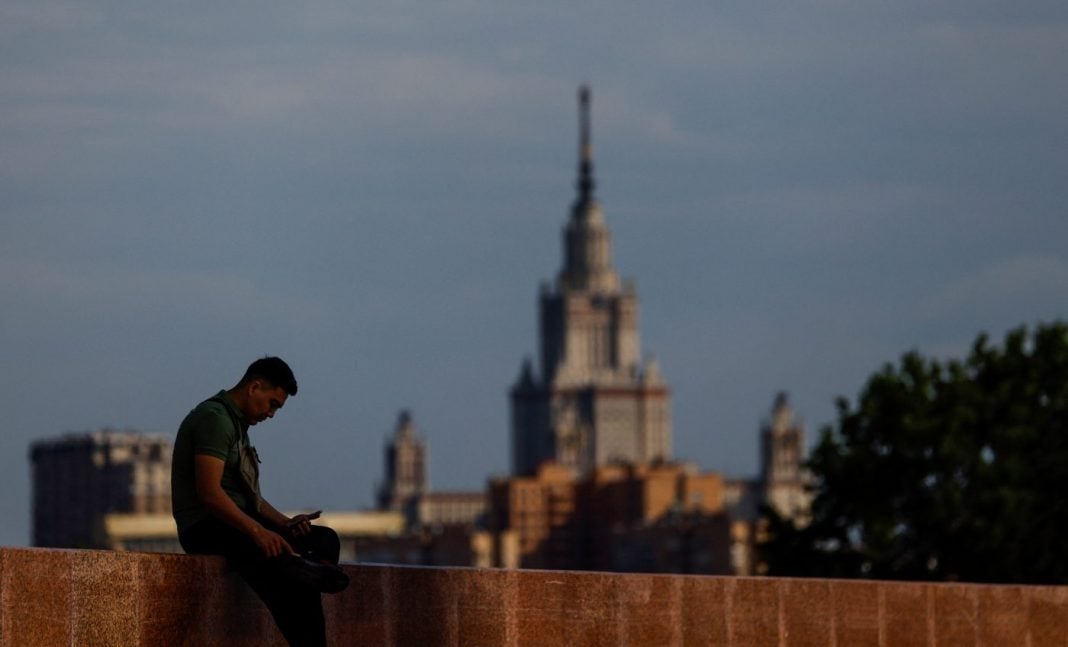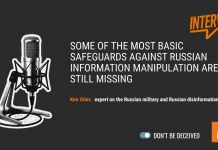Russia’s rulers are taking more and more extreme measures to block access to independently produced information. But there’s resistance.
By Andrei Soldatov and Irina Borogan, for CEPA
The Russian Duma has adopted a bill that effectively introduces punishment for internet searches deemed extremist by the Kremlin. This label is primarily applied to content produced by opposition groups in exile and independent media, and therefore seeks to punish its readers.
The bill introduces fines ranging from 3,000 to 5,000 rubles (approximately $38-$64). However, it is widely understood that the most serious punishment is not the fine itself, but the risk of being blacklisted by Russian authorities – a designation that opens the door to a wide range of consequences in Vladimir Putin’s increasingly repressive despotism.
The direction of travel is clear. The new legislation follows a sustained attack on WhatsApp, which is hugely popular and is now the last major Western social media platform not yet banned. It is an app of choice for all kinds of groups – from parents’ class chats to tenants of apartment buildings. In July, Russian MPs began talking about the need to outlaw and ban the app. Anton Gorelkin, deputy head of the Duma Committee on Information Policy, said it is time for WhatsApp to “prepare to leave the Russian market.”
The crackdown coincides with the rollout of “Max,” a Kremlin-backed messaging app developed by VK (the Russian social media platform) and touted as a domestic alternative to WhatsApp. In July, the Russian government designated Max as a Russian ”national messenger” — a Russian adaptation of the Chinese approach to making state-approved social platforms the standard for communication with state-provided services, banks, and other service providers.
The attack on WhatsApp and the new repressive legislation form part of the same Kremlin effort to harass Russians into switching to Max from WhatsApp. Indeed, six Russian regions — including Mari El, Tatarstan, Altai, Khanty-Mansiysk, and the Vladimir and Tver regions — are reportedly readying themselves to migrate school-related group chats to Max.
The policy is likely to work, especially if the population is given no choice.
However, the larger consequences of the broader crackdown — including the introduction of fines for searching online for information critical of the Kremlin — could be far more significant.
In a way, it is yet another ambitious attempt by the Kremlin to change Russian social behavior following its full-scale invasion of Ukraine.
The Kremlin’s first exercise to alter the social behavior after February 2022 was to intimidate the population into abandoning the bad and dangerous habit of discussing politics in public spaces. Until 2022, it was very common to hear people expressing dissatisfaction with Putin at café tables across Moscow, St Petersburg, and other big cities. That changed within a few months.
Get the Latest
Sign up to receive regular emails and stay informed about CEPA’s work.
Simultaneously, Kremlin propaganda promoted stories about Russians being denounced by fellow travelers to the authorities for watching or reading Ukrainian news on their phones on public transport. The population, already bombarded by constant threats, took this very seriously: these days, one rarely sees Russians watching videos with, say, Zelenskyy, on the Moscow metro. That attempt to change social behavior largely succeeded.
But what about the Kremlin’s effort to change Russians’ habit of searching for independent information?
Generations of Russians grew up on the free internet. When the Kremlin started monitoring and policing social media a decade ago, it aimed to suppress free speech, and it was less interested in what kind of information ordinary Russians could access on YouTube or Instagram.
Citizens could read and watch whatever they want on social media blocked by the Kremlin — VPN use has not been a crime, and millions watch videos made by popular bloggers in exile and read investigations about Kremlin corruption or war crimes in Ukraine — published by journalists placed on the authorities’ wanted list.
This habit of free access to information has been so strong that even Putin’s favorite TV presenter, Ekaterina Andreeva, vocally stood up against the ban of her beloved Instagram, where she had often posted photos of luxury resorts and yachts, and admitted she still used it despite the ban. “I continue posting on Instagram via VPN . . . I believe that banning Instagram in Russia for people who are not involved in extremist activities is wrong,” she said in May 2022.
If even Putin’s propagandists find it hard to change their online habits, re-educating others not to watch their favorite political shows on YouTube or listen to podcasts made by reporters labeled as extremists will be very difficult.
Unless the Kremlin starts arresting people and sending them to prison.
But even then, repression might prove useless in times of major crisis; there is now a well-established and global urge to reach for social media to share emotions and footage. Russia is not immune.
That is why we still see dozens of videos of Ukrainian drone attacks on Russian cities on VK (a Russian analog of Facebook) or Telegram — despite numerous warnings from the Russian military and the authorities against exactly that.
Human habits die hard.
By Andrei Soldatov and Irina Borogan, for CEPA
Andrei Soldatov and Irina Borogan are Non-resident Senior Fellows with the Center for European Policy Analysis (CEPA). They are Russian investigative journalists and co-founders of Agentura.ru, a watchdog of Russian secret service activities. Their book ’Our Dear Friends in Moscow, The Inside Story of a Broken Generation’ by Irina Borogan and Andrei Soldatov was published in June.
Europe’s Edge is CEPA’s online journal covering critical topics on the foreign policy docket across Europe and North America. All opinions expressed on Europe’s Edge are those of the author alone and may not represent those of the institutions they represent or the Center for European Policy Analysis. CEPA maintains a strict intellectual independence policy across all its projects and publications.





